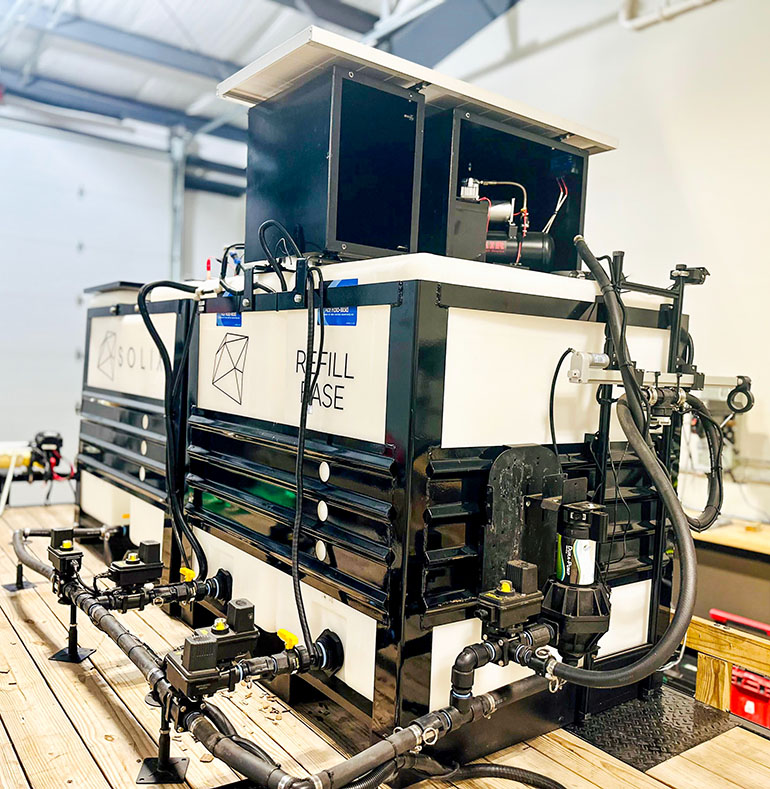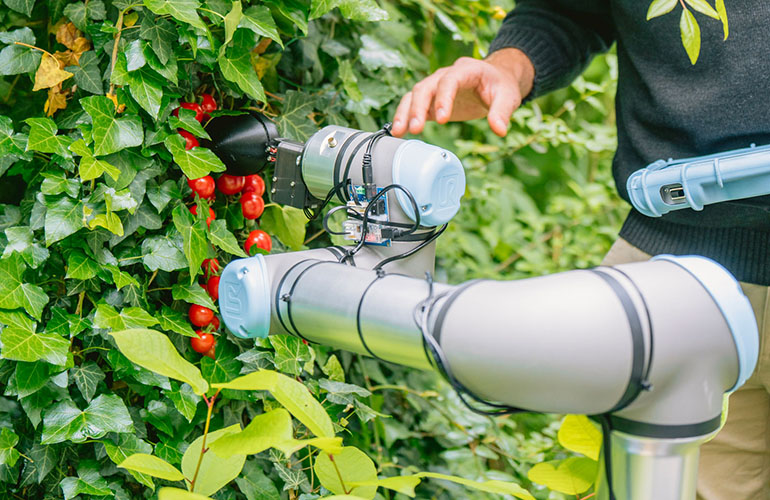In a significant advancement for mobile robotics, the Unitree B2-W is redefining what's possible in all-terrain robot workers. Standing 75.8 centimeters tall and weighing 75 kilograms, this sophisticated machine combines impressive physical capabilities with advanced artificial intelligence to tackle challenging environments and complex tasks.
The B2-W's specifications read like a wish list for industrial automation. With a maximum speed of 20 kilometers per hour and the ability to carry loads up to 120 kilograms while stationary, or 40 kilograms while in motion, this robot worker demonstrates remarkable versatility. Perhaps most impressive is its endurance capability – the ability to travel up to 50 kilometers while carrying a 40-kilogram load, powered by a robust 2kWh battery system.
What truly sets the B2-W apart is its exceptional mobility across challenging terrains. The robot can navigate stairs with heights of 20-25 centimeters, tackle slopes exceeding 45 degrees, and even jump across ditches up to 2 meters wide. These capabilities are made possible by its sophisticated wheel system, featuring 225mm diameter wheels capable of generating 50 N.m of torque at speeds up to 57 radians per second.
The robot's environmental adaptability is equally impressive. With an IP67 rating and operating temperature range from -20°C to 55°C, the B2-W is designed to function reliably in harsh conditions. This ruggedness is complemented by sophisticated processing power, with configurations available featuring Intel Core i7 processors and optional Jetson Orin NX systems for enhanced computational capabilities.
The B2-W's versatility extends to its applications, ranging from logistics and security patrols to research and public space interactions. In logistics operations, its combination of strength and endurance makes it an ideal candidate for material handling and warehouse operations. For security applications, its all-terrain capabilities and advanced sensing systems enable effective surveillance and monitoring in diverse environments.
The robot's design represents a careful balance between power and precision. Its ability to transition between standing (1098x550x758mm) and prone (950x550x450mm) positions demonstrates the mechanical sophistication required for adaptive mobility. This flexibility, combined with its substantial horizontal pulling force of up to 100 kilograms, makes it suitable for both delicate operations and heavy-duty tasks.
As industries continue to seek automated solutions for challenging environments, the Unitree B2-W stands as a testament to how far mobile robotics has come. Its combination of strength, endurance, and intelligence points to a future where robot workers can handle increasingly complex tasks across a wider range of environments, fundamentally changing how we approach industrial and commercial operations.
The B2-W's capabilities suggest a future where the line between human-operated equipment and autonomous systems continues to blur, offering new possibilities for automation in previously challenging environments. Whether navigating complex warehouse layouts, patrolling secure facilities, or assisting in research operations, this robot worker represents a significant step forward in mobile robotics technology.


















